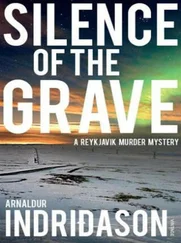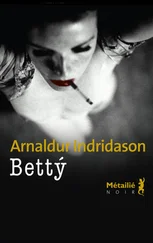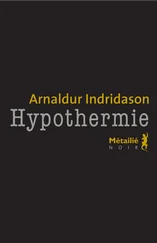“Shirley Temple?”
“The child star.”
“The connection’s obvious,” Gabriel said. “Gudlaugur saw himself as a child star and so did everyone around him. But I can’t see any other significance as such.”
Gabriel stood up, put on his cap, buttoned his coat and wrapped his scarf around his neck. Neither of them said anything. Erlendur opened the door and walked out into the corridor with him.
“Thank you for coming to see me,” he said, offering his hand to shake.
“It was nothing,” Gabriel said. “It was the least I could do for you. And for the dear boy.”
He dithered as if about to add something else, unsure exactly how to phrase it.
“He was terribly innocent,” he said eventually. “A totally harmless boy. He’d been convinced that he was unique and he’d become famous, he could have had the world at his feet. The Vienna Boys” Choir. They make such an awful fuss about small things here in Iceland, even more now than they used to; it’s a national trait in a country of under-achievers. He was bullied at school for being different; he suffered because of it. Then it turned out he was just an ordinary boy and his world fell apart in a single evening. He needed to be strong to put up with that.”
They exchanged farewells and Gabriel turned round and walked down the corridor. Erlendur watched him leaving with the feeling that telling the tale of Gudlaugur Egilsson had drained the old choirmasters strength completely.
Erlendur shut the door. He sat down on the bed and thought about the choirboy and how he found him in a Santa suit with his trousers round his ankles. He wondered how his path had led to that little room and to death, at the end of a life paved with disappointment. He thought about Gudlaugur’s father, paralysed in a wheelchair, with his thick horn-rimmed glasses, and about his sister with her hooked eagle’s nose and her antipathy towards her brother. He thought about the fat hotel manager who had sacked him, and the man from reception who pretended not to know him. He thought about the hotel staff, who did not know who Gudlaugur was. He thought about Henry Wapshott who had travelled all that way to seek out the choirboy because the child Gudlaugur with his lovely voice still existed and always would.
Before he knew it he had started thinking about his brother.
Erlendur put the same record back on the turntable, stretched out, closed his eyes and let the song take him back home.
Maybe it was his song as well.
When Elinborg came back from Hafnarfjordur towards evening she went straight to the hotel to meet Erlendur.
She went up to his floor and knocked on the door, and again when she got no response, then a third time. She was turning away when the door opened at last and Erlendur let her in. He had been lying down thinking and had dozed off, and was rather vague when Elinborg began telling him what she had unearthed in Hafnarfjordur. She had spoken to the ex-headmaster of the primary school, an ancient man who remembered Gudlaugur well; his wife, who had died ten years before, had also been close to the boy. With the headmaster’s help Elinborg tracked down three of Gudlaugur’s classmates who were still living in Hafnarfjordur. One had been at the fateful concert. She talked to the family’s old neighbours and people who were in touch with them in those days.
“No one is ever allowed to excel in this dwarf state,” Elinborg said, sitting down on the bed. “No one’s allowed to be different.”
Everyone knew that Gudlaugur’s life was supposed to be something special. He never talked about it himself, never talked about himself at all really, but everyone knew. He was sent for piano lessons and learned to sing, first from his father and then with the choirmaster who was appointed to conduct the children’s choir, and finally with a well-known singer who once lived in Germany but had come back to Iceland. People praised him to the skies, applauded him, and he would take a bow in his white shirt and black trousers, gentlemanly and sophisticated. Such a beautiful child, Gudlaugur, people said. And he made recordings of his singing. Soon he would be famous in other countries.
He was not from Hafnarfjordur. The family was from the north and had lived in Reykjavik for a while. His father was said to be the son of an organist who had studied singing abroad when he was younger. Rumour had it that he bought the house in Hafnarfjordur with what he inherited from his father, who had made money by trading with the American military after the war. It was said that he inherited enough to live comfortably afterwards. But he was never showy about his wealth. He kept a low profile in the community. Doffed his hat when he went out for walks with his wife and greeted people politely. She was said to be the daughter of a trawler owner. No one knew where. They made few friends in the town. Most of their friends were in Reykjavik, if they had any at all. They did not seem to have many visitors.
When the local boys and Gudlaugur’s classmates called round for him the usual answer was that he had to stay in and do his homework, either for school or for singing and piano practice. Sometimes he was allowed to go out with them and they noticed that he was not as coarse as they were, and strangely sensitive. His clothes never got dirty, he never jumped in puddles, he was rather a wimp at football and spoke very properly. Sometimes he talked about people with foreign names. Some Schubert bloke. And when they told him about the latest action comics they were reading or what they had seen at the cinema, he told them he read poetry. Maybe not necessarily because he really wanted to, but because his father said it was good for him to read poetry. They had a hunch that his father set him lessons to learn and was very strict about it. One poem every evening.
His sister was different. Tougher. More like her father. The father did not seem to make such great demands on her as on the boy. She was learning the piano and like her brother, had joined the children’s choir when it was set up. Her friends described how she was sometimes jealous of her brother when their father praised him; their mother appeared to favour the son as well. People thought Gudlaugur and his mother were close. She was like his guardian angel.
One of Gudlaugur’s classmates was shown into the drawing room once while the family debated whether he could go out to play. The father stood on the stairs wearing his thick glasses, Gudlaugur on the landing and his mother by the door to the drawing room, and she said it did not matter if the boy went out to play. He did not have so many friends and they did not call for him very often. He could go on practising later.
“Get on with your exercises!” the father shouted. “Do you think it’s something you can pick up and put down as you please? You don’t understand the dedication it involves, do you? You’ll never understand that!”
“He’s just a child,” his mother said. “And he doesn’t have many friends. You can’t keep him shut up indoors all day. He must be allowed to be a child too.”
“It’s all right,” Gudlaugur said, and walked over to the boy visiting him. “I might come out later. Go home and I’ll come afterwards.”
As the boy left, before the door closed behind him, he heard Gudlaugur’s father shout down the stairs: “You shall never do that again, argue with me in front of strangers.”
Over time Gudlaugur became isolated at school and the boys in the top form started to tease him. It was very innocent at first. They all teased each other and there were fights in the playground and pranks just as in all schools, but by the age of eleven Gudlaugur had clearly become the butt of the bullying and practical jokes. It was not a large school by modern standards and everyone knew that Gudlaugur was different. He was wan and sickly. A stay-at-home. The boys where he lived stopped calling for him and started teasing him at school. His satchel would go missing or be empty when he picked it up. Boys pushed him over. They ripped his clothes. He was beaten up. He was called names. No one invited him to birthday parties.
Читать дальше












